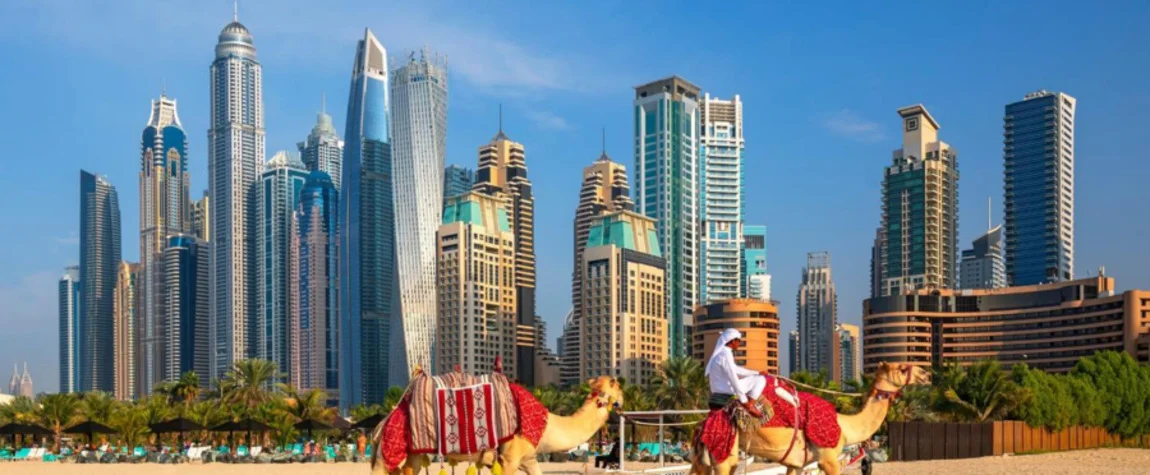Dubai, a global financial hub and the leading city of the United Arab Emirates (UAE), has become a well-documented center for money laundering activities. Despite the UAE’s official commitments to combat illegal financial operations such as money laundering and terrorism financing, Dubai’s economic model, regulatory environment, and real estate market collectively create vulnerabilities that facilitate illicit financial flows, particularly from politically exposed persons (PEPs), criminals, and sanctioned entities.
Dubai’s Economic and Regulatory Environment
Dubai’s appeal as a financial center stems from its rapid economic development, political stability, and business-friendly regulations. This has attracted vast international capital and individuals looking to invest or hide wealth, especially from regions with weaker governance or ongoing conflicts. The UAE’s regulatory framework includes several federal anti-money laundering (AML) laws, such as the Federal Decree Law No. (20) of 2018 on AML and the Cabinet Resolution No. (10) of 2019 enforcing compliance obligations on financial institutions, virtual asset providers, and other designated businesses.
However, the financial enforcement landscape in Dubai is characterized by fragmentation: free trade zones (FTZs) and financial free zones (FFZs) like the Dubai International Financial Center (DIFC) have regulatory regimes distinct from federal oversight, complicating unified AML enforcement. Free zones permit 100% foreign ownership, no import duties, tax exemptions, and relatively easy licensing, fostering opacity and creating loopholes for money laundering.
Real Estate as a Major Money Laundering Channel
Dubai’s booming real estate sector serves as a critical channel for laundering illicit funds. High-end properties provide a vehicle to invest large sums of “dirty money” under the guise of legitimate wealth, especially given the limited transparency around beneficial ownership and transaction scrutiny. According to investigations such as the “Dubai Leaks,” over $31 billion of suspicious funds were linked to real estate purchases by foreign individuals and entities, many associated with PEPs, sanctioned individuals, or those linked to corruption globally.
The city’s real estate market, valued at over $160 billion in foreign-owned assets, remains vulnerable despite regulatory efforts requiring reporting of transactions above AED 55,000 through mechanisms like the Real Estate Activity Report (REAR). Criminal actors exploit this sector due to loose enforcement and the ability to convert illicit funds into tangible, high-value assets offering potential capital appreciation and social prestige.
Use of Shell Companies and Offshore Structures
Shell companies play a pivotal role in obscuring the origins and ownership of illicit funds in Dubai. The emirate’s free zones, notably Jebel Ali Free Zone Authority (JAFZA), provide incentives such as full confidentiality, 100% foreign ownership, and no taxation, fostering an environment conducive to establishing offshore entities. These structures create layers of anonymity, making it difficult for regulators and investigators to trace ultimate beneficial owners or financial flows.
Such shell companies facilitate complex money laundering schemes, often involving cross-border transactions and the purchase of luxury assets like real estate. These arrangements allow corrupt individuals or criminal networks to cleanse the proceeds of crime while enjoying Dubai’s economic benefits.
Challenges and International Concerns
The decentralized enforcement among emirates, the existence of multiple regulatory bodies, varying AML standards within free zones, and Dubai’s attraction as a global financial hub complicate effective AML compliance. Furthermore, global investigations have repeatedly cited Dubai as a money laundering paradise or “the world’s biggest washing machine,” reflecting international concern over its role in facilitating illicit financial flows.
Despite recent steps by UAE authorities to enhance AML supervision and expand reporting requirements, these measures have yet to close all gaps exploited by criminals. High-profile cases and leaked data underscore the ongoing challenge of reconciling Dubai’s economic ambitions with the imperative for financial transparency and integrity.
In summary, Dubai’s combination of rapid development, a thriving real estate market prized by wealthy investors, extensive use of shell companies, and fragmented regulatory oversight collectively facilitate significant money laundering activities. This environment attracts illicit financial flows from across the globe, notably involving politically exposed persons and sanctioned actors, making Dubai a critical focus for international AML efforts and regulatory scrutiny


